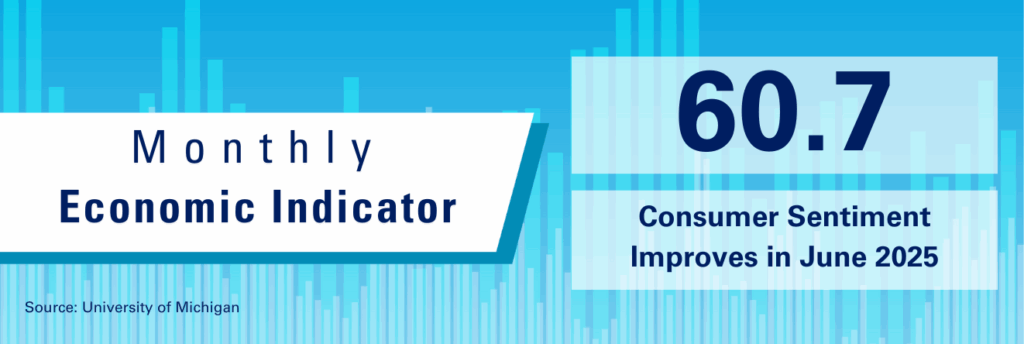Despite an unexpected surge in consumer sentiment in June 2025, driven by perceived easing tariff pressures, the overall economic outlook remains cautious. The University of Michigan’s latest reading showed consumer sentiment rising to 60.7 from 52.2 in May. However, consumers still perceive wide-ranging downside risks to the economy and remain guarded and concerned about the trajectory of the economy. This sentiment is also echoed by Michigan’s top executives, according to the Business Leaders for Michigan’s CEO Economic Outlook Survey, 87% of executives expect a decline in Michigan’s economy and 81% predict a decline in the U.S. economy as of May 2025, citing pressure from tariffs and global economic uncertainty.
Overall, leading economic indicators point towards a slowing economy. The U.S. economy experienced its first decline since 2022 in the first quarter of 2025, shrinking by 0.5%. This contraction was mainly attributed to reduced government spending and a substantial drop in net exports. Additionally, May’s inflation rate came in lower than anticipated at 2.4%, a result of companies holding ample inventory and facing diminished consumer demand. The Federal Reserve is not expected to implement rate cuts during its June meeting, though markets are anticipating potential cuts later in the year.









